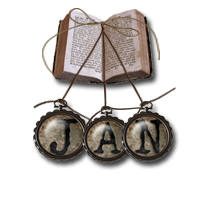I am extremely honored to welcome Pearl North to Eating YA Books. She is here to answer some questions about about her YA novel Libyrinth, which has been released today in paperback.
So, lets get to it!
What four words would you use to describe Libyrinth?
Thoughtful, bookish, dire, hopeful.
Why did you decide to write a young adult novel and then publish it under pseudonym?
I'd had the idea for Libyrinth in the back of my head for many years and in fact had written the opening few scenes. When I finally got around to writing the whole book, I thought the characters and the subject matter were perfect for a YA novel. The choice of writing under a pseudonym came as a way to set the Libyrinth books apart from the science fiction I've written for adult readers.
What inspired you to write Libyrinth?
That's a strange story. When I was about six, my folks took me to a movie called On a Clear Day You Can See Forever. It's a musical about past-life regression starring Barbara Streisand. No, really. Anyway, as a child I was captivated by a scene in that film in which a small girl walks past rows of bookshelves covered in cobwebs. As she goes by, each book speaks to her. That idea stuck with me for the rest of my life and eventually evolved into Libyrinth. But here's the thing: Prior to Libyrinth's publication, but after I'd finished writing it, that film aired on television. I watched it, eagerly awaiting the scene that had given birth to my new book. And it wasn't there. There is no such scene in the movie. My guess is that at six, I got pretty bored with the film and I daydreamed it, so I suppose the idea was mine all along.
Which character in Libyrinth do you most identify with and why?
Probably Clauda, actually, though I have my Haly side. But Clauda and I share a certain energy level, recklessness, and sense of humor.
In looking at a few summaries, I noticed differences in how the setting of Libyrinth was described. Tell us about the setting and what thought processes you went through as you wrote about Libyrinth’s world.
Without giving away too much, since the nature of the world is a big part of the third book, Libyrinth takes place on a world that is connected to our earth, and to humanity, though in a less direct way than some surmise. I'm fascinated with the way in which information is transmitted over long periods of time -- what is forgotten, what remains, and how words and phrases remain in use long after their original meaning has been lost.
Now that you have written your first YA book what did you like/not like about this genre and do you plan on writing more YA books in future?
Well, I love writing about people who are just becoming adults. That's such dramatic time of life -- there's a lot to work with, as a writer. And as a reader many of my most favorite books, and the ones that have stuck with me all my life, are ones I read as a young adult. And to answer the second part, I've just turned in the third Libyrinth book to my editor. The working title is The Book of the Night. The second Libyrinth book, The Boy from Ilysies, comes out this November.
Tell us about authors or books that have been influential in your writing life.
It's hard to know where to begin, really. Before I could read myself, my sister read E.B. White's Charlotte's Web to me every night before bed. That's where my interest in books and reading really began. I learned about the facts of life from Judy Blume's Forever, and survived junior high by escaping to Middle Earth. As an adult and a fledgling science fiction writer, I was inspired by the work of Gene Wolfe and Ursula LeGuin. Mid-career, Freedom and Necessity by Emma Bull and Steven Brust, and the Miles Vorkosigan series by Lois McMaster Bujold, gave me a whole new direction and helped me discover who I really wanted to be as a writer. Now, I've just finished a book entitled Wicked Gentlemen by Ginn Hale that has inspired me all over again.
What is the most difficult aspect of writing science fiction?
I think it's balancing the ideas and world building with the character's story arc. I've always found it a creative challenge to translate a cool bit of science extrapolation into somebody's personal problem. Because stories are always about someone.
What was the writing process like? Any specific hard, funny, or simply memorable event that happened while writing Libyrinth?
I had a wonderful writer's group that was of great help while I was writing Libyrinth. In particular, early on in the second draft, one of my critique partners said, "They wouldn't call themselves Eradicants, they'd call themselves Singers." He was absolutely right and that observation let me to developing the whole Singer culture as it appears in the finished book. In fact, it influenced the outcome of the book as well, because it got me thinking about their way of life, and seeing things from their perspective, and they wound up being much more than just bad guys, as a result.
Is there anything else you would like to share?
I always find it interesting that with Libyrinth, I set out to write a book about censorship, and wound up writing a book about peace. But looking deeper, I don't think you can have peace in a world where ideas are restricted.
I want to thank Ms Harris (aka Pearl North) for taking time out of her busy writing live to answer my questions. I can’t wait to read the next book in this fantastic trilogy, The Boy From Ilyseis due out this November.
I hope you will also check out my review of Libyrinth.
I want to thank Ms Harris (aka Pearl North) for taking time out of her busy writing live to answer my questions. I can’t wait to read the next book in this fantastic trilogy, The Boy From Ilyseis due out this November.
I hope you will also check out my review of Libyrinth.









































